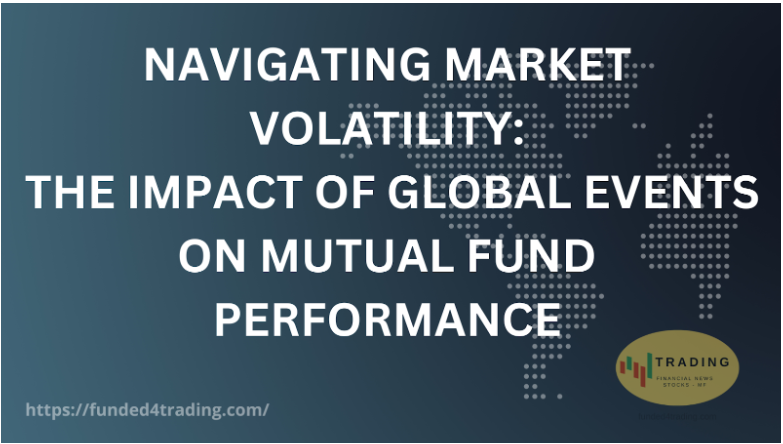Introduction:
In the dynamic world of finance, where global events can send shockwaves through markets, mutual fund investors often find themselves at the intersection of uncertainty and opportunity. The past few years have been a testament to the interconnectedness of economies and financial markets, with geopolitical tensions, pandemics, and economic shifts creating a complex landscape for investors. In this blog, we delve into the profound impact of global events on mutual fund performance and how investors can navigate through the storm.
Understanding the Global Landscape
Before we dissect the impact on mutual funds, it’s essential to grasp the global landscape. In an era of globalization, events in one corner of the world can reverberate across financial markets. Geopolitical tensions, such as trade disputes or political unrest, can introduce uncertainty and lead to market fluctuations. Likewise, global health crises, like the recent pandemic, can disrupt supply chains, impact consumer behavior, and trigger economic downturns.
The Ripple Effect on Mutual Funds
Mutual funds, as diversified investment vehicles, are not immune to the influence of global events. The performance of these funds is intricately tied to the health of the overall economy and the sectors in which they invest. When global events create volatility in financial markets, mutual funds experience fluctuations in asset values.
1. Sector-Specific Impact:
Different sectors respond differently to global events. For instance, a technology-focused mutual fund may benefit from advancements and increased demand during a global tech boom but could face challenges during a trade war that impacts supply chains. Understanding the sectoral impact is crucial for both fund managers and investors.
2. Geographic Exposure:
Global events often have a varied impact on different regions. Mutual funds with significant exposure to a particular geographic area may experience heightened volatility based on the geopolitical or economic situation in that region. Diversification across countries becomes a risk management strategy for fund managers.
3. Market Sentiment:
Investor sentiment plays a pivotal role in mutual fund performance. Global events can create fear or optimism, influencing market sentiment. This emotional response can lead to sudden shifts in fund flows, affecting the net asset value (NAV) of mutual funds.
Navigating Through Uncertainty
While the impact of global events on mutual fund performance is inevitable, prudent strategies can help investors navigate through uncertain times.
1. Diversification:
Diversification remains a cornerstone of sound investment strategy. Mutual funds that spread investments across various asset classes, sectors, and geographic regions can mitigate risks associated with the impact of a single global event.
2. Active Management:
In times of heightened volatility, actively managed funds have the flexibility to adjust their portfolios swiftly. Skilled fund managers can capitalize on emerging opportunities or reduce exposure to sectors facing headwinds, providing a level of adaptability that can be advantageous in turbulent times.
3. Focus on Fundamentals:
Investors should not lose sight of the fundamental factors that drive mutual fund performance. Analyzing a fund’s investment objectives, management team, historical performance, and expense ratios remains critical. These fundamentals provide a solid foundation for making informed investment decisions.
Conclusion:
In conclusion, the impact of global events on mutual fund performance underscores the need for a strategic and informed approach to investing. While challenges are inherent in a dynamic global economy, opportunities abound for those who approach investing with a long-term perspective and a focus on fundamental principles. As we navigate through uncertain times, investors and fund managers alike must remain vigilant, adaptive, and committed to the principles that define sound investment strategies.

